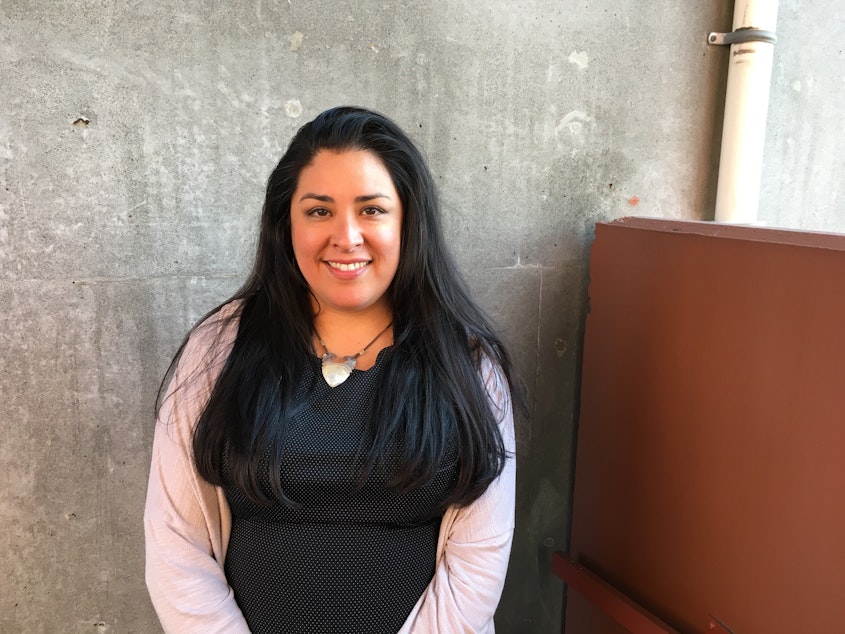Are 'good Seattleites' failing the city's Native people?

Many Native people who are homeless in Seattle say they feel invisible.
“We are a city that’s named after a great chief of Suquamish-Duwamish descent, and we don’t always know and feel that in this city,” said Colleen Echohawk-Hayashi, executive director of the Chief Seattle Club. “I think that we have an issue where we don’t really want to engage in it.”
Native people are seven times more likely to be homeless in Seattle, and there’s a long list of historical reasons for that disparity. Native people were once banned from entering the city limits. Children were forced to attend boarding schools and lost touch with their families and culture. And starting in the 1950s, Native Americans were relocated from reservations to urban areas.
“I think that’s jarring for us as good Seattleites,” Echohawk-Hayashi said. “We believe in the goodness of people, and we want to do good for other people, but it’s a stark reality that is hard to grasp.”
Echohawk-Hayashi, who also serves on KUOW's board of directors, spoke with Bill Radke about her vision for a city that’s more welcoming and supportive of Native people. And she said we can look to Vancouver, B.C., for guidance.
Sponsored
“When I go to Vancouver, it feels more like a Native space and a Native way,” she said. “I think we have a lot to learn from our relatives up north.”
Echohawk-Hayashi said Native art and languages are incorporated more prominently into Vancouver’s culture. Canada has also apologized and agreed to pay reparations for the country’s mistreatment of Native and indigenous people.
Echohawk-Hayashi has helped lobby the U.S. government to do the same, but those efforts have met resistance.
“I think the reason for that is there would have to be payment made to some of our tribes and some of our people because of what they lost,” she said. “That’s what has happened in Canada and in Australia.”
Echohawk-Hayashi believes we can and should be doing more to recognize and support the 80,000 Native people living in King County. That’s why the Chief Seattle Club has made their Pioneer Square headquarters into a Native space, and they’re working on creating 80-100 units of affordable housing next door.
Sponsored
She wants to see more Native-style housing throughout the city, along with more Native people in decision-making positions.
“I truly believe that the way that we are going to see our Native homeless population brought into housing and into wholeness and wellness has everything to do with trauma,” she said. “Talking about the trauma, dealing with the generational, historical trauma that is a part of the problem and the issue we have within our Native homeless community.”Also included in the audio segment is a poem called "Indigenous Homeless," by Tlingit artist and storyteller Nahaan. The poem is about his family and community's experiences with homelessness.

